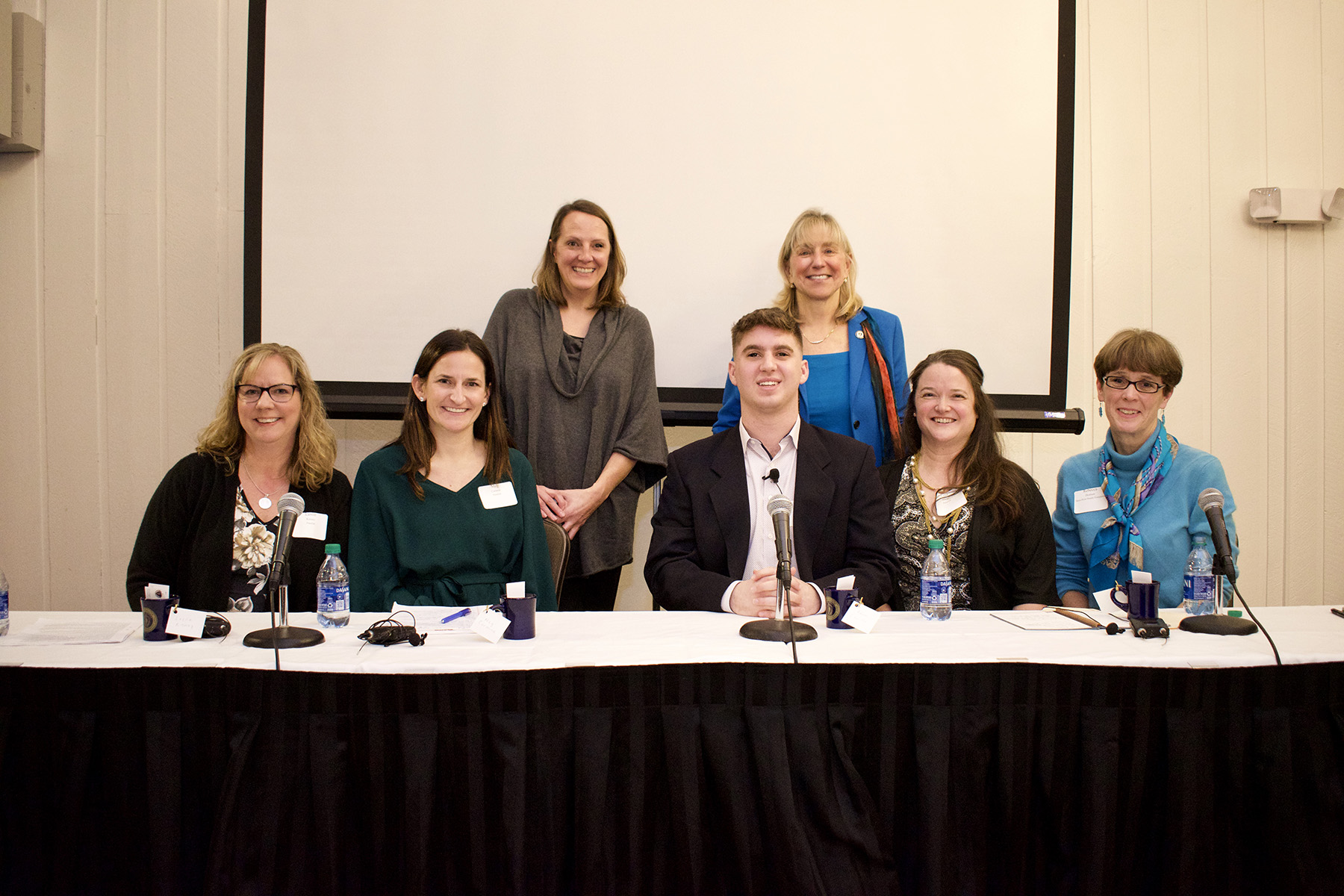“It’s clear we (need to) talk about our kids’ mental health. This is just the beginning…”
Such is how Senator Karen Spilka introduced Strategies for Student Stress: A Social-Emotional Learning Forum for K-12 Parents, a forum she hosted in January at the Warren Conference Center in Ashland in partnership with MetroWest Health Foundation, Call2Talk, MetroWest Medical Center and Framingham State University. Spilka described mental health as an issue that deeply affected her personally, having grown up with a father who dealt with mental illness.
When she heard from parents, Spilka said she was “blown away. We all know the stress our kids are experiencing day in and day out and how much it has impacted families as a whole.” In fact, the forum was packed, with organizers having to turn people away.
As a legislator, Spilka expressed a desire to help fight stigma associated with mental illness and to have parity for mental health and physical health problems. She explained that the Child Health and Wellness Act will mandate that insurance providers regularly update their provider lists, eliminating “ghost” providers who are no longer in service or no longer accepting patients. The Mass. Senate, she says, is working on a comprehensive Mental Health Reform Bill.
The first speaker of the night was Dr. Shella Dennery, Program Director of Boston Children’s Hospital’s Neighborhood Partnership Program, who noted that 20-25% of all youth struggling with mental illness, making it “the most common disease of childhood.” Those with chronic illness and children of color face a higher risk. What’s more, among those who turn to suicide, nationally, she said, 80% show signs beforehand, but a fifth do not, a concern where mood disorders and suicide are on the rise. Teens’ high level of social media and technology use, might contribute to many (70%) of them are not sleeping the recommended nightly 8-10 hours.
Dennery noted that half of those who diagnosed with behavioral health disorders show symptoms by age 14, while 75% show symptoms by age 24, with the average delay in symptom onset and receiving behavioral health care treatment 8-10 years. Most (60-70%) do not get the behavioral health care they need, and the average wait time for the first appointment is 3-6 months. Of those who do get therapy, 40 to 60% terminate treatment early. Topping the list in barriers to care are long wait times, a shortage of providers, a difficult system to navigate, lack of services, financial/insurance related issues and stigma.
Rebecca Donham, Senior Program Officer at the MetroWest Health Foundation, next talked about the findings of the most recent bi-annual Metrowest Adolescent Health Survey. The survey, customized for school districts, shows that one in five middle-schoolers and one in three high-schoolers in the Metrowest say they’ve been “very stressed” in the past 30 days. Those who report being “very stressed” were also less likely less sleep.
After Dennery spoke, members of a four-person community panel featuring student and Framingham High School alum Adam Levine, Medway parent Lesley Kinney, Holliston Director of Student Services Margaret Carmire and panel moderator and Hopkinton High School adjustment counselor Lisa Winner, answered questions that time allowed.
Levine spoke about his experience as a high school student dealing with depression. He noted how helpful Framingham High’s Bridge Program– which provides short-term, intensive general education and clinical supports to students who are returning to school after having experienced a significant mental health impact and loss of school time – was to him. Levine encouraged students to have an “open dialogue” with teachers and professionals, that he has learned that teachers “want what’s best for you at all levels of education.”
Lesley Kinney spoke about her 15-year-old daughter’s crippling anxiety.
“It was almost a full-time job to help her find the programs she needed,” says the mother, herself a child professional, who discovered no family is immune to mental health disorders. Kinney says Medway High School helped her daughter along the way to a better place on a journey that wasn’t easy. “Get help early, and don’t stop until you find it,” she said. The family learned that some of the ways they tried to allay her daughter’s anxiety only reinforced the problem, that they had to learn coping mechanisms. “Sticking to the (treatment) plan is a lot of work for the whole family,” said Kinney.
Holliston High’s Margaret Carmire noted that Holliston schools received a grant to implement universal screening, partnering with Wellesley Center for Women to screen students in 7th, 9th and 11th grades for signs of depression or suicidal thoughts. “It’s fascinating to me that we screen for a lot of health areas,” but not mental health, said Carmire, who says that education is a significant part of the program, for parents, staff and students about what depression is and how to spot symptoms. The second part of the program is actual screening in all three grades, according to the SOS (Signs of Suicide®) Program, and thirdly, a response component. “We’re ensuring resources are in place so that students are getting the services they need and engaging to end stigma,” says Carmire. She recommended the William James College Interface Service, a mental health referral hotline for families (888-244-6843), as helping to quicken the pace of access to mental health services.

Issue Date:
February, 2020
Article Body:
